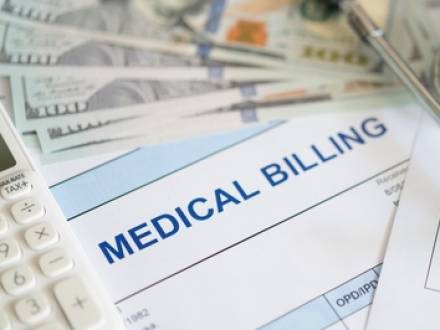Can Medical Debt Be Discharged in Bankruptcy?
 Between sky-high health insurance costs, deductibles, and unforeseen charges, medical care costs can really add up. And if you have to face an unforeseen medical emergency or serious illness, those costs can get even higher. The result is that many people rack up considerable medical debt. The good news is that Chapter 7 bankruptcy can discharge many types of medical debt. This type of debt is such a common reason that people file for bankruptcy—an estimated 66.5 percent of all consumer bankruptcies, according to the Consumer Financial Protection Bureau (CFPB)—that there is even a term for it: medical bankruptcy. An experienced Greenbelt, MD medical debt and bankruptcy attorney can advise you on whether filing for bankruptcy to discharge your medical debts can be the best option for you.
Between sky-high health insurance costs, deductibles, and unforeseen charges, medical care costs can really add up. And if you have to face an unforeseen medical emergency or serious illness, those costs can get even higher. The result is that many people rack up considerable medical debt. The good news is that Chapter 7 bankruptcy can discharge many types of medical debt. This type of debt is such a common reason that people file for bankruptcy—an estimated 66.5 percent of all consumer bankruptcies, according to the Consumer Financial Protection Bureau (CFPB)—that there is even a term for it: medical bankruptcy. An experienced Greenbelt, MD medical debt and bankruptcy attorney can advise you on whether filing for bankruptcy to discharge your medical debts can be the best option for you.
How Are Medical Debts Treated in Bankruptcy?
Similar to credit card debt, medical debt is considered unsecured debt. That means that it is not secured by collateral, unlike a mortgage, which is secured by the home. Unsecured debts are generally dischargeable in bankruptcy, and this includes medical debt.
What Happens to Medical Debt in Chapter 7 Bankruptcy?
Chapter 7 bankruptcy is a relatively short process, in which you will give the court your nonexempt assets for liquidation. In exchange, at the end of the process many of your debts, including medical debts, will be discharged. After discharge you will no longer be on the hook for that debt; it is effectively erased. As mentioned above, medical debt typically falls under this category so it could also be discharged.
What Happens to Medical Debt in Chapter 13 Bankruptcy?
In Chapter 13 bankruptcy, you do not liquidate your assets to pay back your debts. Instead, you will repay them with a reasonable and feasible payment plan over three to five years. As part of the payment plan, you will repay a portion of any unsecured debts, including medical debt. The amount of unsecured debt you pay will be calculated by factoring in how much your unsecured creditors would have been paid if you had filed for Chapter 7 bankruptcy as well as your disposable income. Any remaining debt will be discharged at the end of the Chapter 13 bankruptcy process. Since medical debt is unsecured debt, you may end up paying back very little of your medical debt and still have it discharged at the end of the process.
Call a Greenbelt, MD Bankruptcy Attorney
At The Law Office of Donald L. Bell, attorney Donald Bell has over 20 years of experience representing clients in bankruptcy. If you face mounting medical bills and want to see if bankruptcy could be a way for you to get a fresh financial start, call the office at 301-614-0535 for a complimentary consultation and speak with our experienced College Park, MD bankruptcy attorney.






